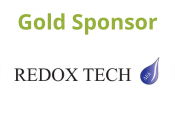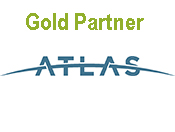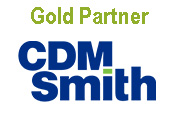Gail L. Batchelder, Ph.D., P.G., L.E.P: Board Member, LSP Board of Registration
This is the first in a series of articles profiling current members of the LSP Board of Registration. The fact that geologists practicing in Massachusetts were on the losing side of an effort to get recognized as professionals stuck in Gail Batchelder's craw. A licensed geologist in New Hampshire, Pennsylvania and Wisconsin, Batchelder was not recognized as a licensed professional in her home state of Massachusetts despite her strong credentials and her doctorate in geology from UMass Amherst with a research focus on hydrogeology and low-temperature geochemistry. So in 1992, Batchelder was quite pleased by the creation of the Commonwealth's "new" privatized program and the licensing of engineers, geologists, and other scientists to oversee the assessment and remediation of contaminated properties. By virtue of the program, geologists and scientists could become licensed and be viewed in the marketplace as professionals rather than contractors. Batchelder had planned to become an LSP herself, but missed the initial application deadline when a complicated project in Connecticut - where she subsequently became licensed as an LEP - kept her from getting her application in on time.
Four years later, that lapse proved fortuitous when a call from former LSP Board Director Alan Fierce to discuss LSP Board approval for a continuing education course turned around, with Fierce making a pitch for her to throw her hat in the ring for consideration for the board's recently-vacated hydrogeologist seat. Although not specified in the LSP Board's enabling statute, it had become the board's policy that the hydrogeologist seat should be held by a non-LSP, which Batchelder said was explained to her as a compromise between the environmental consultants who wanted a majority of board members to be LSPs with the appropriate technical expertise to judge their peers, and legislators who did not want to give the newly minted LSPs too much power. Batchelder jumped at the opportunity. "I thought, 'Aren't I lucky that I didn't get everything together on time,'" said Batchelder. "To me it was important to have a part in shaping the program. This was an opportunity to be involved in something that created a new profession," she said. "Being a licensed professional means something. It was important to be part of that process." Appointed in 1997, Batchelder is the longest sitting member of the current LSP Board. She intends to step down this year once a disciplinary complaint that she is involved in concludes and revisions to the LSP exam have been completed. Even though she intends to leave the Board, she still feels a strong sense of responsibility to the organization and to the individuals impacted by the decisions it makes. Serving on the Board has been an incredible experience, said Batchelder, who views the Commonwealth's privatized program as the best in the nation and a model for other states. "When you see how it was put together, you realize how incredibly brilliant the team was that put the process in place," she said. "The public has to believe in LSPs for the program to work," she said. By prequalifying and licensing LSPs, professionalizing the practice, and establishing a structure for audits and oversight, the creators laid the foundation for a novel and forward-looking approach to clean up contaminated properties and return them to active reuse. The LSP Board's agenda has changed since the Board promulgated its initial regulations in 1993, Batchelder says, and its duties have evolved from creating the new program to maintaining the process and the quality of the profession. "In the beginning, we used to have a lot of very good philosophical conversations regarding the board's role and how to interpret its own regulations," Batchelder said. "It was really interesting and challenging because it made you think about questions such as: What level of performance is appropriate to maintain the integrity of the profession? How can the Board hold an LSP to such standards? And most broadly, how can the Board help the program work effectively?" "We spent a lot of time working out procedural matters," Batchelder said. "Once the procedures were in place, our primary focus seemed to transition more into the investigation of complaints and related disciplinary activities." "The Board worked really well together because we liked and respected each other, even when we disagreed," Batchelder recalled. "It was fortunate that we really enjoyed each other's company because we spent a lot of time together." Early on, the Board saw only a handful of complaints a year, a fact that Batchelder attributed to MassDEP's willingness to work with LSPs rather than penalize them. "In the beginning not too many complaints were filed," Batchelder said. "The Department was just getting into the audits and was figuring out how to handle them. It seemed they were much more willing to work with LSPs, and found "deficiencies" instead of "violations" because they understood people were learning the program." That changed as the program matured, and the Department began "inundating" the Board with complaints, Batchelder said. "The program got a little older, and it seemed that the Department figured that people should know better by that time. They saw the same LSPs doing the same things over and over. It was just the process of the program aging." The complaint process is the toughest and least understood part of being a board member, Batchelder said. "The time and thought that goes into complaints is enormous," she said. "To sit in judgment is the most stressful aspect of being a Board member." "We read every bit of the complaint files ourselves," Batchelder said, recalling how former LSP Board member Gretchen Latowsky once brought a milk crate full of documents pertaining to a single case to an LSPA membership meeting featuring a panel of LSP Board members. "We felt it was very important to be personally familiar with every aspect of a case," she said. "It is extraordinarily stressful for a board member to be investigating a complaint and to sit across from someone, especially someone you know," Batchelder said. "But we said we would do our job to ensure that LSPs were practicing in a way that was protective of the public and that was our objective. Everyone took that very seriously." The flow of complains has dropped off considerably in recent years, said Batchelder, and the Board's focus has shifted to education, outreach, rewriting the LSP exam and reviewing applications for licensure. The exam needs to be revamped to address the regulatory changes expected to come down from MassDEP within the next few months, Batchelder said, and education is an ongoing process. Batchelder expects the Board will look more toward distance learning to complement the face-to-face learning. But, she said, she hopes the Board will keep a balance between the two. "The real learning doesn't happen in the eight-hour presentation," she said. "Where you learn and get really engaged is when you interact with others. There is so much value in discussing various topics with fellow professionals to provide a broader perspective on how other LSPs might handle a particular issue." Even with its shift in focus, the Board still has the responsibility to maintain the integrity of the profession and the law that created it, Batchelder said. Being appointed to the Board means something, and should not be pursued if a candidate is not totally committed to the Commonwealth's privatized program and willing to do the required work. The position - which pays nothing, not even expenses - is time-consuming, and anyone considering a seat on the board should expect to spend a minimum of between 10 and 20 hours a month on Board work, depending on the agenda. Batchelder also feels that it is critical that the Board maintain the statutorily established separation between itself and MassDEP. The two are separate entities, the only links being the Board Chair and the fact that the LSP Board staff are MassDEP employees, she said. "The clear distinction between the two entities was intended to be maintained and is a fundamental part of making the program successful," Batchelder said. By and large, MassDEP, the LSP Board, and the LSP community work well together, but when differences of opinion arise, it is important to remember that while MassDEP has the authority to decide whether a violation of the MCP has occurred, it is within the jurisdiction of the LSP Board to decide whether an LSP's actions constitute a violation of the LSP Board's regulations and rise to a level at which discipline by the LSP Board is warranted, she explained. "The most important role for the LSP Board is to continue to support the LSP program by maintaining the integrity of the profession," Batchelder said. "It has a responsibility to make sure the proper people are licensed and that LSPs maintain, and hopefully improve, their skill level. When an issue with an LSP arises, Board members must continue to respect the LSPs but remember that they still have the responsibility to protect public health, safety, welfare, and the environment. LSP Board members take an oath when they accept the position, and honoring that responsibility is important to me." |


































